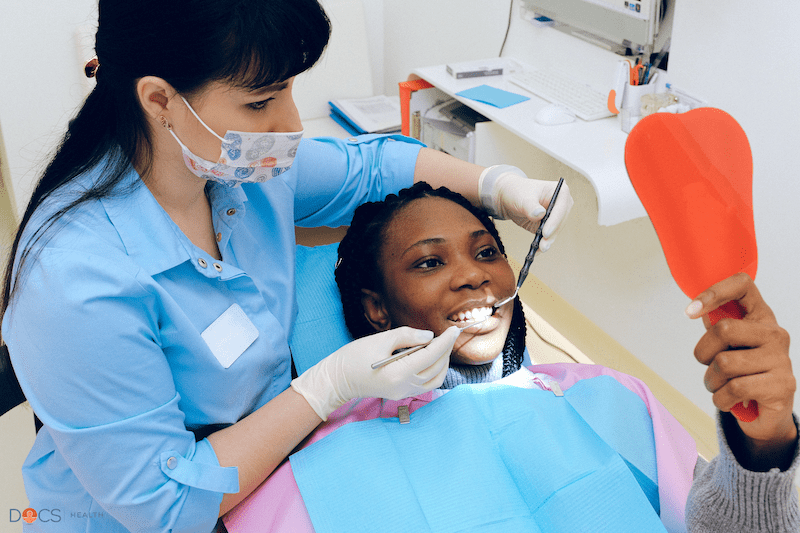Parents juggle soccer games, head colds, and homework as days blur together and families grow. And military families often find themselves short-handed when service members deploy or go on TAD. Dental appointments sometimes get pushed to the back burner, especially when kids don’t complain about any problems. But dental health can significantly impact a family’s budget and stress over the long term. A little prevention and regular checkups usually keep crisis care out of the family plan.
It may seem logical to leave damaged baby teeth untreated. And in cases when a baby tooth is almost ready to fall out, it may be possible to wait. But that’s a judgment call that a dentist should make. Here’s why:
- Cavities in baby teeth can progress quickly. Tooth decay can result in pain, infection, and swelling that requires emergency treatment.
- Cavities contain millions of harmful bacteria that can move into other teeth and cause decay to spread.
- Baby teeth help maintain the space for permanent teeth until they’re ready to come in. If an infected baby tooth needs to be removed, a series of orthodontic problems can result.
Regular dental visits help identify problems in their earliest stages in kids. Most importantly, this care allows a dental team to customize preventive solutions for each situation. Children are unique, and their dental health is, too.
Help growth move in the right direction.
As children grow, their upper and lower jaw develops along with their permanent teeth. Starting at about age 6, the first baby teeth fall out, and permanent teeth arrive. This process continues until about age 12, although the timeline can vary between kids.
Growth and development follow a dynamic course, but it’s often an ideal time to correct bite, alignment, and appearance concerns. Sometimes one jaw grows more than another, and that may cause an underbite or overbite. If an upper jaw doesn’t expand enough, a youngster may have a high palate that decreases the size of the nasal passages. In these cases, a dental problem becomes an obstructive sleep issue. Sleep apnea in children can dramatically affect their learning ability, heart development, and overall growth.
Correcting facial growth and orthodontic problems after a child stops growing in their late teens can be complicated. Regular dental check-ups help your family dentist identify these concerns and suggest the best time to intervene. It’s best to choose a dentist that knows how to help parents manage growth issues if they’re moving to a new assignment or separating from the military. If baby teeth are too close together, permanent teeth may not come in correctly. Some children should see an orthodontist long before they reach their teen years, for example.
Success now and in the future.
Kids that visit the dentist regularly often grow with fewer dental problems and a better appreciation for dental care. Research also shows that kids with poor oral health miss more school and receive lower grades than those with good oral health. So, a healthy mouth can affect current success and future quality of life.
DOCS Health offers school-based programs that provide comprehensive dental care for kids while in school. Through programs like the Oral Health Impact Project, parents can make an appointment for their child to see the dentist while at school, and have convenience and confidence.


